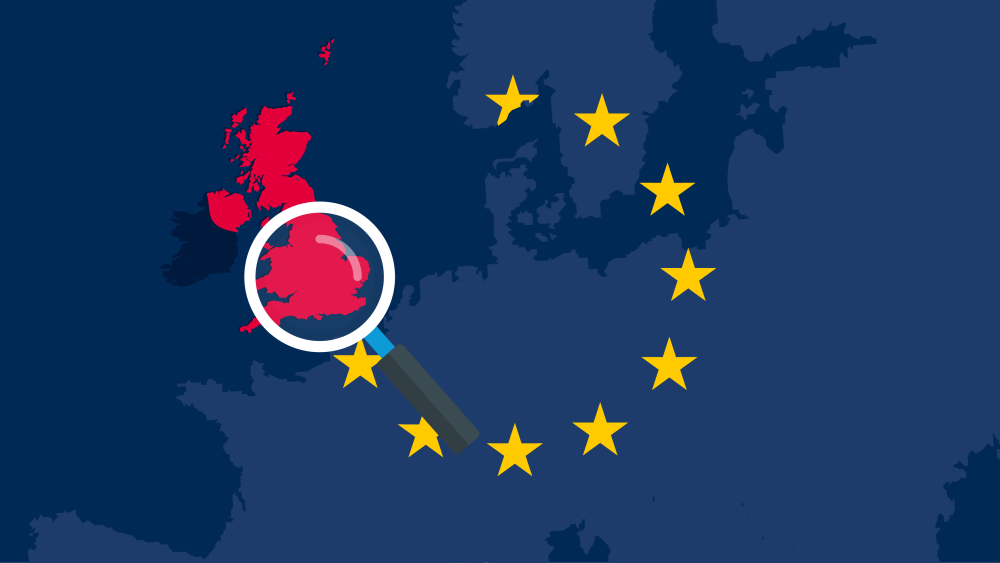Brexit: Boris' New Deal Proposal
03 Oct 2019

Boris Johnson this morning presented further details of his proposals of what he envisions a Brexit deal with the EU should look like.
As expected, the changes focus on the main point of controversy in Theresa May's deal, the Northern Ireland 'backstop'. As a reminder, the backstop is a proposed fail-safe that would only take effect if the UK and EU fail to make an alternative agreement during the 2 year negotiating period that follows the UK’s actual exit of the EU, which is currently scheduled for 31 Oct.
In the 2-year future relationship negotiating period after 31 Oct, we still remain in the Single Market and Customs Union and continue to trade with the EU as we do now. (In effect, the upcoming 2 years are pretty similar to the situation now, but the UK will have technically left the EU, allowing the UK to begin to forge rules and trade deals outside the EU. It does, however, put a(nother) clock on the time we have to reach the future relationship agreement. The problem is that no one can agree on what should happen if we can’t reach an adequate future relationship agreement within the 2 years, so many don’t want to start the clock.
The widely-accepted problem with Theresa May’s deal was that, in order to keep the border between the Republic of Ireland and Northern Ireland open, Northern Ireland would have to remain in the EU’s Customs Union, which would see it having to conform to EU to a greater extent than the rest of the UK. This would effectively mean there was a border between Northern Ireland and the UK and policing of goods between Northern Ireland and the UK would have to take effect. This was unacceptable to many MPs (including the DUP) as it meant NI was being 'treated differently' to the rest of the UK.
The new proposals see Northern Ireland leaving the Customs Union, but remaining part of the Single Market. There would be an 'all-island [of Ireland] regulatory zone' which aligned customs standards where necessary. Nonetheless, in this case, there would still need to be border checks, but the government says these could either be done electronically or by ‘trusted traders’ performing any checks away from the border or electronic border checks. No explanatory advice on how this would work has been issued.
The government suggest that this is the most feasible way to reduce regulatory checks and border requirements as is possible. Because inasmuch as borders remaining open is important, particularly between Northern Ireland and the Republic of Ireland, there is literally a change in legal rules in the two different territories. However, the proposals, on the face of it, don’t appear to remove the principled objections of those who don’t want any regulatory differences between Northern Ireland and the rest of the UK and have no border.
Furthermore, the government propose that the Northern Irish Assembly at Stormont be given veto over the proposed agreements that they could issue to force the UK and EU to make alternative arrangements. They would be given the opportunity to do this at the end of the 2 year negotiating period and then again every 4 years.
Nonetheless, there are more issues with the proposals. First, the Stormont Assembly has not been sitting since 2017 because of failed attempts to reach power-sharing agreements. There is no evidence that they will come back together any time soon.
Adding to this, giving Northern Ireland a veto breaches an EU red line, as it is unclear what has to happen between the EU and UK if Stormont does veto the agreement at the end of the 2-year process, or at some point in future. It is likely that the EU would reject or require specific clarifications on this if it is to have legs. Nonetheless, EU leaders are largely keeping schtum at present to see whether the deal has support in Parliament.
Labour, SNP, Plaid and Green parties have already rejected Boris Johnson's deal (the SNP say that other nations of the UK should be allowed to remain in the EU, too). The opposition have reiterated their demand that the PM ask for an extension and then have a general election.
While handful of Labour rebels and some members of the conservative ERG group have indicated they would support the deal, it is quite difficult to envision how it would have gained parliamentary support if this proposal had been brought by Theresa May. Perhaps, therefore, it is the case that any deal just needed a new salesman. However, if the concerns raised about prior deals are hard-held, government support will be difficult to garner.
The DMA and partner industry bodies have advised the government only to exit with a deal that offers adequate protection to businesses, access to skills, and the matching of standards in certain areas. The DMA continues to encourage the government to have a data adequacy agreement as a core feature of any deal and rejects a no-deal scenario.
The DMA Brexit Toolkit can be accessed here.

Please login to comment.
Comments